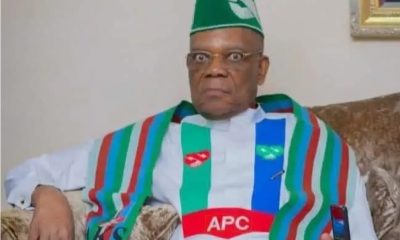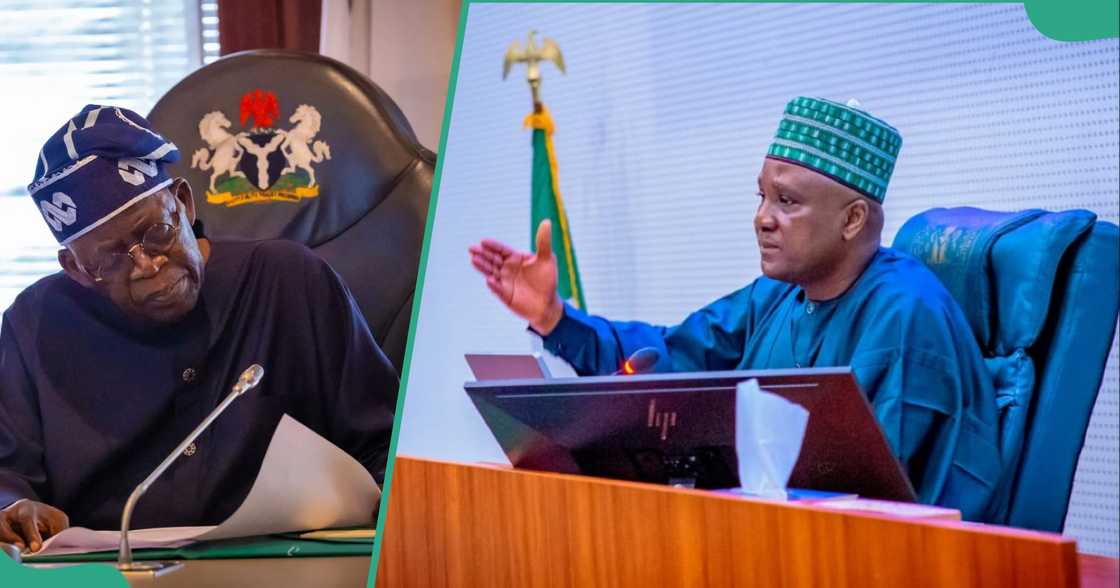As the National Assembly reconvenes after a two-week break, President Bola Tinubu’s four tax reform bills have taken center stage in Abuja.
These bills, central to the administration’s economic policy, have generated significant debate among lawmakers, with sharp divides between northern and southern representatives.
The four bills — the Nigeria Tax Bill 2024, the Tax Administration Bill, the Nigeria Revenue Service Establishment Bill, and the Joint Revenue Board Establishment Bill — are poised to shape Nigeria’s fiscal landscape.
The contention surrounding these bills lies primarily in the proposed restructuring of Value Added Tax (VAT) distribution.
The bills recommend that 60% of VAT revenue be shared based on the derivation principle, sparking concerns among northern governors and lawmakers.
Critics argue that the bills disproportionately benefit Lagos State, home to the headquarters of many major corporations and already an economic powerhouse.
This has led to regional tensions, with some northern leaders asserting that the bills are designed to favor southern states at the expense of the North.
READ ALSO: Kwankwaso warns against tax reforms, claims bias against Northern Nigeria
Over the weekend, Rabiu Kwankwaso, former Kano State governor and presidential candidate of the New Nigeria People’s Party (NNPP), intensified the debate by describing the bills as a “plot by Lagos State to take over the taxes of Kano.” Kwankwaso’s statement served as a rallying cry for lawmakers from the North to scrutinize the bills more critically.
Dr. Sani Bello, a political economist at Ahmadu Bello University, highlighted that the tax bills have become a proxy for deeper regional economic concerns.
“The proposed tax-sharing formula taps into the long-standing economic competition between the North and the South. While the South sees it as a means of fair redistribution, many in the North fear it would widen economic disparities,” Dr. Bello noted.
Taiwo Oyedele, the chairman of the presidential tax reform committee, has been at the forefront of addressing these concerns. He has argued that contrary to the northern governors’ stance, the reform would benefit the northern states more significantly.
“The bills aim to create a more balanced revenue system that supports less economically robust regions. Lagos State, due to its economic strength, could actually face a relative reduction in revenue,” Oyedele stated during a recent legislative briefing.
The numerical composition of the Senate could be crucial in determining the fate of the tax bills. The North holds a slight majority, with 57 senators compared to the South’s 51.
READ ALSO: Minimum wage earners to get tax exemption under new reforms–Oyedele
However, regional loyalties in the North are not uniform. States in the North-Central region, including Kogi, Kwara, Benue, Nasarawa, and Plateau, often adopt positions distinct from the more conservative North-East and North-West blocs. With 15 senators in the North-Central potentially up for swing votes, the final decision may come down to which side can unify these lawmakers.
Professor Bamidele Afolabi, a constitutional law expert, explained the potential for strategic alliances in the Senate.
“A coalition between southern senators and those from the North-Central could secure the passage of the bills. However, the influence of powerful voices like Senator Ali Ndume, who declared the bills ‘dead on arrival,’ cannot be underestimated,” he said.
In the House, the North holds a more significant numerical advantage with 190 seats, while the South holds 170 seats.
Yet, as in the Senate, these figures mask complex regional dynamics. North-Central representatives often break ranks with their northern counterparts, focusing on local interests that may align more closely with southern positions.
Abdulmumin Jibrin, an NNPP member from Kano State, previously expressed support for the bills, suggesting that they would ultimately benefit the North. However, Kwankwaso’s recent remarks could influence lawmakers’ stances, shifting the balance of opinion.
Philip Agbese, the House’s deputy spokesperson, remains a vocal proponent of the bills, asserting that the legislation is vital for national economic rejuvenation.
“The House of Representatives is committed to supporting President Tinubu’s vision for economic reform. We will not be swayed by external lobbying or threats from certain governors who seek to impose their political will,” Agbese stated, referring to reports that some governors had threatened to block re-election bids for dissenting lawmakers.
With 181 votes needed for the House to pass the tax bills, the loudest voices will likely set the tone for the final outcome.
Observers believe that the dynamic floor debates and lobbying efforts over the coming weeks will be decisive. While a united North could block the bills, fragmentation in voting patterns — especially among North-Central lawmakers — may give the South the push needed to secure passage.
Dr. Nkechi Onwuegbuchi, a public policy analyst, stressed the importance of bipartisan dialogue. “The debate over these tax bills represents more than fiscal policy; it’s a test of national cohesion and political maturity. If the Assembly can find a compromise that addresses regional concerns, it could set a precedent for more unified policy-making,” she said.

 Latest1 week ago
Latest1 week ago
 Latest1 week ago
Latest1 week ago
 Latest1 week ago
Latest1 week ago
 Business1 week ago
Business1 week ago
 Football1 week ago
Football1 week ago
 Business1 week ago
Business1 week ago
 Business1 week ago
Business1 week ago
 Latest1 week ago
Latest1 week ago

